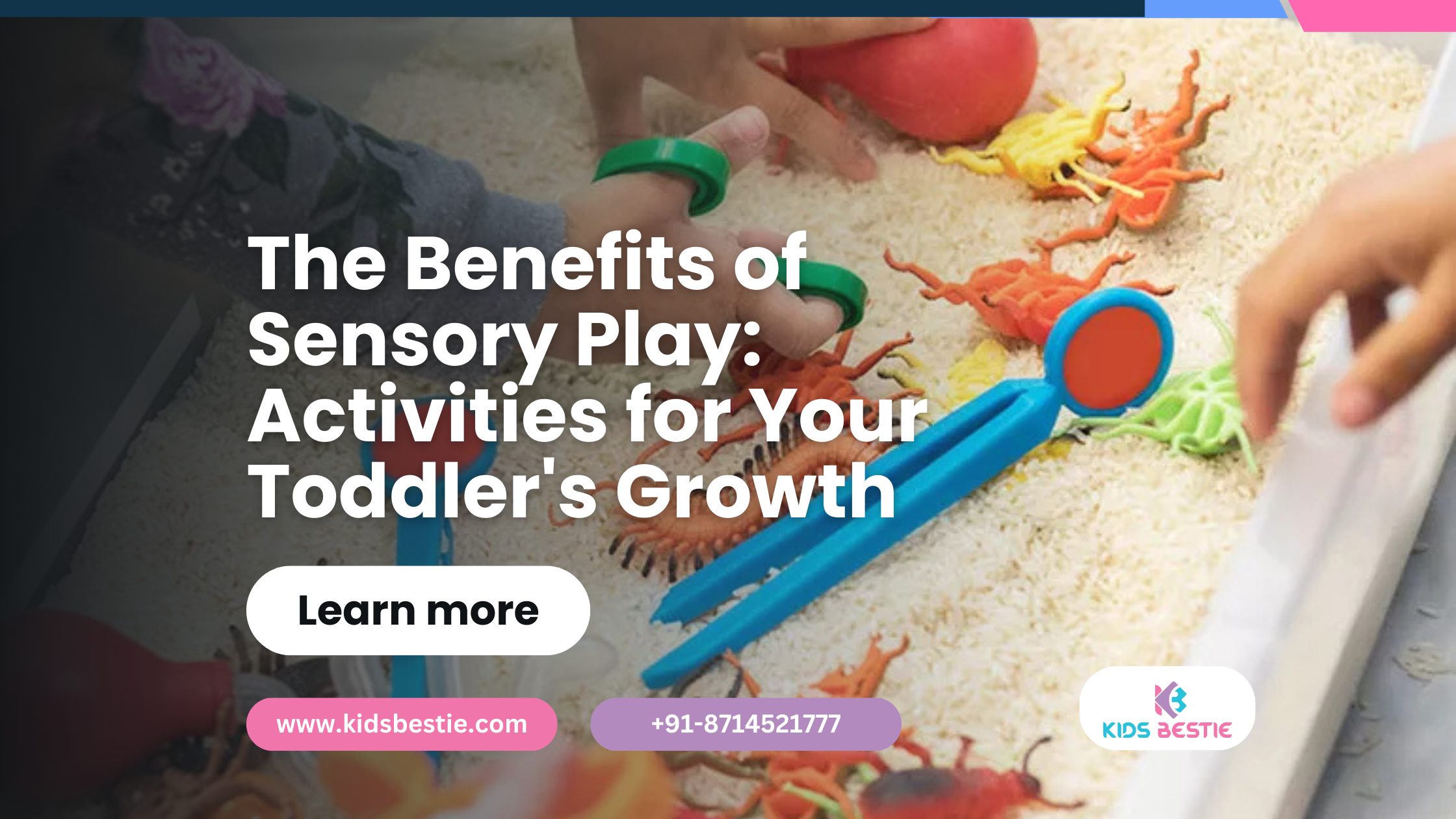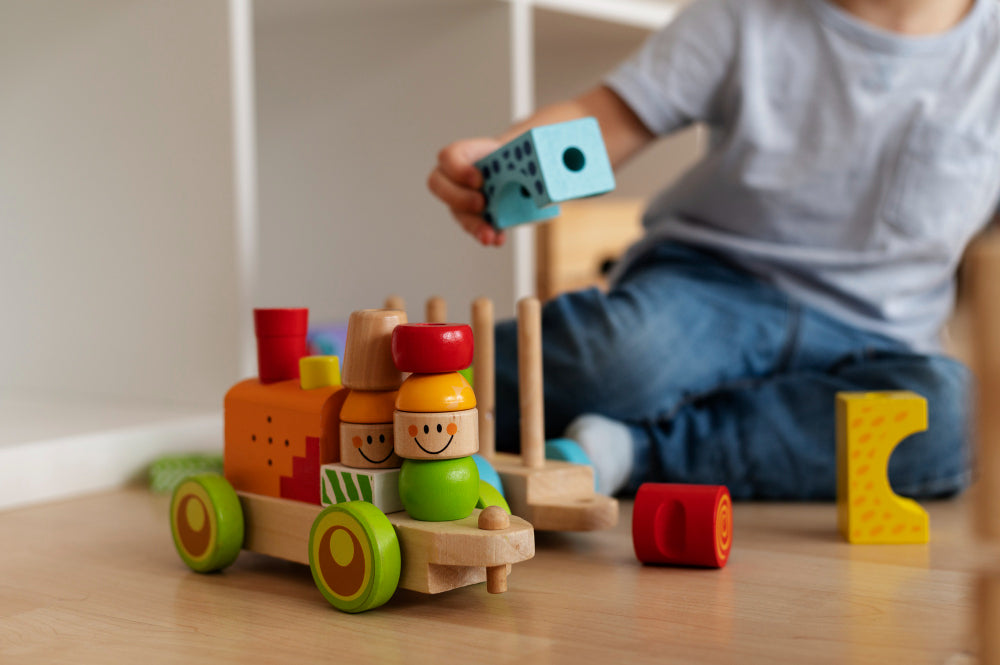
The Benefits of Sensory Play: Activities for Your Toddler's Growth
In the early years of a child's life, exploration is key. Sensory play activities that engage the senses of touch, smell, taste, sight, and hearing serves as a foundation for learning and development. For toddlers, these experiences are not just fun; they're essential for cognitive growth, motor skills, and emotional well-being.
Understanding Sensory Play
Sensory play involves activities that stimulate a child's senses, encouraging them to explore and make sense of the world around them. This form of play supports language development, cognitive growth, fine and gross motor skills, problem-solving abilities, and social interaction. By engaging in sensory play, toddlers build nerve connections in the brain's pathways, enhancing their ability to complete more complex learning tasks.
Why Sensory Play Matters for Toddlers
1. Enhances Cognitive Development
Sensory activities help toddlers develop critical thinking skills. For instance, when a child plays with different textures, they learn to compare and contrast, fostering analytical skills. Engaging in such play also aids in understanding cause and effect, as they see the results of their actions during playtime.
2. Supports Language Skills
As toddlers describe their sensory experiences, they expand their vocabulary. Discussing the softness of cotton or the crunchiness of leaves introduces new words and concepts, enhancing communication skills.
3. Develops Fine and Gross Motor Skills
Manipulating small objects like beads or pouring water from one container to another refines fine motor skills. Activities like jumping on a trampoline or dancing to music improve gross motor abilities, promoting overall physical development.
4. Encourages Social Interaction
Group sensory play teaches toddlers to share, take turns, and collaborate with peers. These interactions are crucial for developing empathy and understanding social cues.
5. Aids Emotional Regulation
Sensory play can be calming for toddlers. Activities like playing with sand or listening to soothing music help children manage anxiety and frustration, promoting emotional resilience.
Sensory Play Activities for Toddlers
Here are some engaging sensory activities tailored for toddlers:
1. Texture Exploration Bins
Fill shallow containers with materials like rice, lentils, or sand. Hide small toys inside and let your toddler dig and discover. This activity enhances tactile exploration and fine motor skills.
2. Water Play
Provide cups, spoons, and floating toys in a basin of water. This activity improves hand-eye coordination and introduces concepts like sinking and floating.
3. Playdough Fun
Homemade or store-bought playdough allows toddlers to mold, squish, and create, enhancing tactile experiences and creativity.
4. Scented Painting
Mix natural scents like vanilla or lemon into non-toxic paints. As children paint, they engage both smell and sight, enriching sensory experiences.
5. Sound Matching Games
Use containers filled with different materials (beans, coins, rice) and have toddlers shake and match similar sounds. This activity sharpens auditory discrimination skills.
6. Nature Walks
Collect leaves, flowers, and stones. Discuss textures, colors, and scents, connecting children with the natural world and enhancing observational skills.
Incorporating Sensory Play in Daily Routines
Integrating sensory play doesn't require elaborate setups. Simple daily activities can be transformed:
-
Bath Time: Introduce sponges, cups, and waterproof toys to make bath time a sensory experience.
-
Meal Preparation: Allow toddlers to touch and smell ingredients, enhancing their connection to food and textures.
-
Gardening: Digging soil, planting seeds, and watering plants engage multiple senses and teach responsibility.
Safety Tips for Sensory Play
-
Supervision: Always supervise toddlers during sensory activities to ensure safety.
-
Non-Toxic Materials: Use child-safe, non-toxic materials, especially for activities involving taste or smell.
-
Allergy Awareness: Be mindful of potential allergens in materials used.
-
Cleanliness: Ensure that materials are clean and sanitized to prevent infections.
Kids Bestie: Your Partner in Sensory Play
At Kids Bestie, we understand the pivotal role sensory play holds in a child's development. Our curated selection of toys and resources is designed to cater to the diverse sensory needs of toddlers, ensuring safety, engagement, and educational value. We are committed to supporting parents and caregivers in providing enriching experiences that foster growth and joy in young children.
FAQs
Q1: At what age should I start sensory play with my child?
A1: Sensory play can begin in infancy with simple activities like tummy time and gradually evolve into more complex activities as the child grows.
Q2: How often should sensory play be incorporated?
A2: Daily incorporation, even in small doses, can be beneficial. Consistency helps reinforce learning and development.
Q3: Can sensory play help with picky eating?
A3: Yes, involving children in food-related sensory activities can make them more open to trying new foods by reducing anxiety around unfamiliar textures and smells.
Q4: Are there any risks associated with sensory play?
A4: When supervised and using safe, non-toxic materials, sensory play is generally safe. Always be cautious of small objects that



